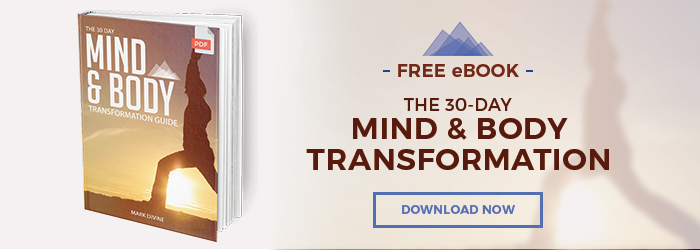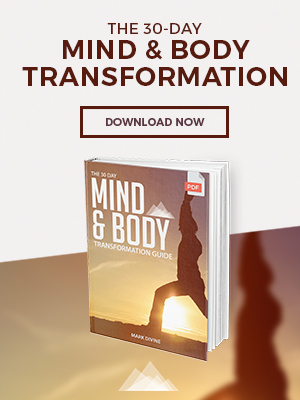“γνῶθι σεαυτόν” – “Know thyself” – Delphic Maxim
This Greek Aphorism, inscribed at the Temple of Apollo at Delphi, was a tenant of Ancient Greek philosophy and introspection that remains relevant to this day. In his writings, Plato constantly employed the maxim, “Know Thyself,” to motivate much of Socrates’ dialogues. But what does it mean to truly know yourself?
What is Self-Awareness?
The psychological examination of self-awareness can be linked to psychologists Shelley Duval and Ruber Wicklund’s theory which proposed: “When we focus our attention on ourselves, we evaluate and compare our current behavior to our internal standards and values. We become self-conscious as objective evaluators of ourselves.”
In other words, self-awareness is a cornerstone of our emotional intelligence. This ability to examine our emotions and thoughts is key to understanding ourselves better, coming to terms with who we are, and positively handling our thoughts, emotions, and actions. The more you pay attention to your emotions and how you act or react, the better you grasp your motivations behind your actions. The more aware you are of your own habits, the easier it becomes to improve or alter those habits.
A deeper awareness also allows us to truly create a new path and live out our authentic destiny. With a greater self-awareness, you can avoid making the same mistakes again and again. It also helps you gain momentum to move forward and accomplish your goals. One way to establish your self-awareness is through an awakening and while this won’t happen for everyone, there are many other ways to be mindful and aware.
Developing deeper self-awareness starts with an examination of our core beliefs and then digging into what I like to call our “ONE Thing and 3P’s” – Passion, Purpose, and Principle, which guide our broader actions in life. In order to discover your ONE Thing and 3P’s you have to ask the following questions:
1. Who am I and what am I here for? What is the ONE Thing I am supposed to do and accomplish in my life, and what does that mean for me right now?
2. What is my PURPOSE? How to take my ONE Thing and activate it in the world?
3. What am I PASSIONATE about and how can I do more of that?
4. What do I value, and how can I develop these PRINCIPLES so they define my character for the rest of my life?
I know firsthand that answering some, if not all, of these questions, can be extremely difficult, especially for those of you who are in the early stages of adulthood. Looking inward is not easy, it may be uncomfortable or leave you despondent with what you uncover.
That said, by training your mind to enter a state of insight, you prepare yourself for mental growth. I personally suggest you utilize these tools to help assess your 3 P’s.
Insight Meditation – allows you to dwell upon and consider an internal aspect of your self, such as an emotion, belief, habit, or thought pattern. By calling attention to an issue and allowing your mind to focus on self-observation, you can gain new insights that you had not taken the time or effort to consider.
Contemplation – while insight meditation is inward facing, contemplation uses an external source of inspiration, such as a poem, a bible verse or a song. As you contemplate and reflect upon the meanings of these things, you may be challenged by the particular beliefs and possibly gain insight that contrast with your entrenched beliefs. Challenging yourself is a fantastic way to self-motivate and trigger inner growth.
Journaling – serves as a great complement to these other drills. Writing not only helps us process our thoughts but also leads to inner peace and connection with ourselves. Writing down and digging up our deepest desires, thoughts, fears, goals and other emotions help you mark and notice patterns of thought; especially patterns of negative thinking that are paramount to change. I’ve found that journaling even just 10 minutes a day can help to center yourself and reflect on who you are, where you are in your life and where you want to go. By making this a habit, you can continue to build your self-awareness and watch your inner warrior grow and learn.
They say the first step is admitting you have a problem… that’s true in every aspect of life. The more you know about yourself, the better you will become at adapting to the changes in life. Self-awareness is, at its most basic, introspection; being aware of your needs and acting on them to help you become your true self.
Self-mastery and self-awareness take years of work and contemplation, but identifying these things is extremely important for your psychological and physiological well-being. As humans, we will likely never fully understand ourselves, if such a thing is even possible. However, the journey and process of exploring, understanding and becoming our better selves lead to a life well lived. The life of a true warrior.






I am reminded of a quote from Socrates. The unexamined life, is a life not worth living. And there is a book that is called the Twelve steps, & Twelve traditions. That was penned by a group of people that suffered a social stigma back in the 1930’s. In which they discovered that not much progress in life can be accomplished, without an unsparing & thorough self survey of one’s character defect’s and short comings. It is a piece of literature that can serve people from all walks of life.